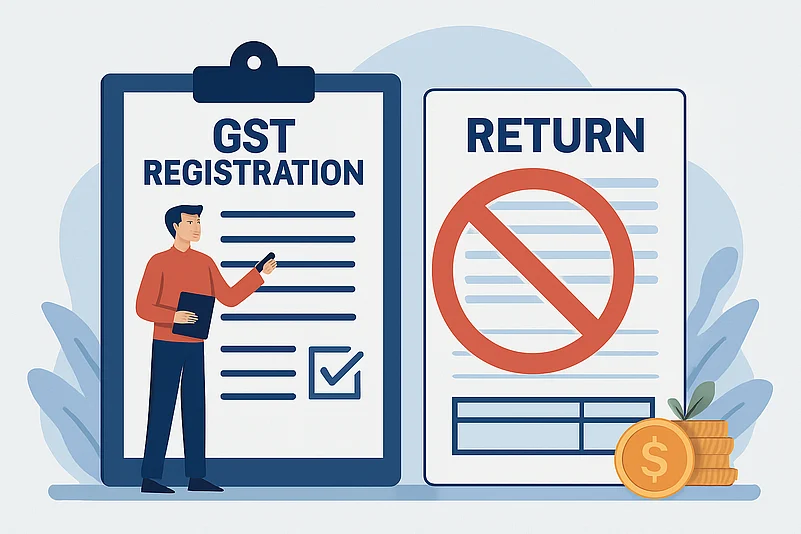
Summary of this article
Professionals must register for GST once turnover exceeds Rs 20 lakh annually
GST registration involves online application, Aadhaar verification, and documentation
Common errors include wrong PAN, incomplete papers, or incorrect GST scheme
Failure to register invites penalties up to 100 per cent of unpaid tax and legal action
Salaried professionals do not need to worry about registering for Goods and Services Tax (GST). However, a professional is liable to obtain GST registration once his ‘aggregate turnover’ crosses Rs 20 lakh in a given financial year. Aggregate turnover includes exempt and non-taxable turnover as well. The registration application is to be filed once the professional has reached an aggregate turnover of around Rs 18 to 19 lakh and is reasonably assured of his aggregate turnover crossing Rs 20 lakh in that financial year.
So, you need to keep track of your income throughout the year and keep a tab on it so that you can apply for GST when the time comes. Once you are registered for GST, you need to inform all your customers and clients that you are GST registered. If you are working with a freelance platform, you need to update your GST information too.
Keeping all stakeholders updated ensures transparent business operations and compliance with GST laws, and thus, one can avoid penalties and disputes.
Procedure For Application
The procedure for applying for GST registration is simple. “An online application is to be filed providing details of the professional, his place of business, nature of activities, bank accounts, etc. Supporting documentation has to be uploaded. The registration application is to be authenticated using the Aadhaar of the professional. After verification, the registration is granted by the GST authorities,” says Kamal Aggarwal, senior advisor, Singhania & Co.
Once the professional has received his GST registration, he can file his GST returns. “Accordingly, one cannot apply for GST registration while filing returns. GST registration has to be obtained first, and only thereafter is one liable to file,” says Aggarwal.
Mistakes To Avoid
Some of the common mistakes to avoid when GST registration are providing incorrect PAN details, submitting incomplete documents, and selecting the wrong GST scheme. These errors can lead to a delay in registration approval and lead to penalties.
What Happens If You Fail To Register
If you do not register for GST even after your aggregate annual turnover crosses the applicable threshold, you will face serious consequences. You will be liable to pay the GST amount along with interest on overdue tax. An additional penalty may be imposed and can be 100 per cent of the tax due. It will also affect your credibility. Legal action may also be initiated by tax authorities.










